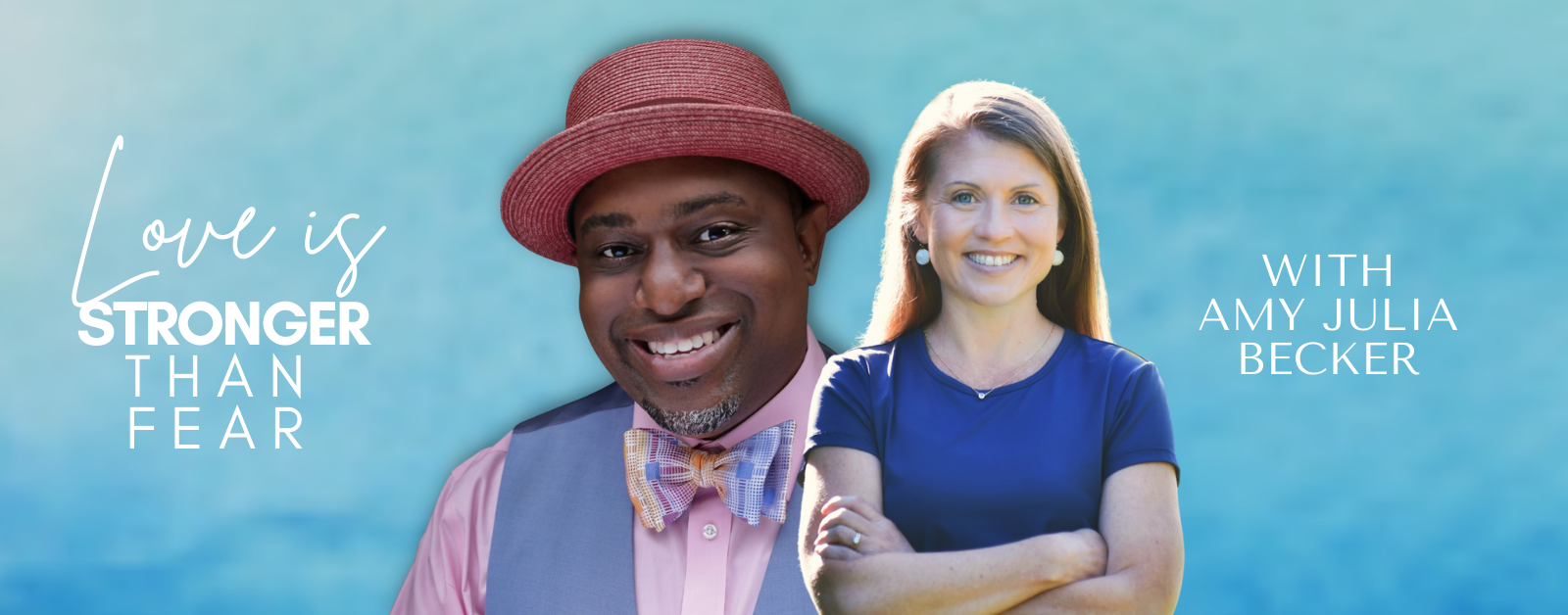Race, class, and the kingdom of God all come up in this conversation between Amy Julia and David Bailey, Director of Arrabon, a ministry to help churches become reconciling communities. In this introductory episode for Season 3, David and Amy Julia talk about why white people can feel afraid to enter into conversations about race and privilege, the controversies over Confederate monuments in David’s hometown of Richmond, Virginia, whether this moment of protest and activism will translate into lasting social change, and more.
This is a podcast for restless sleepers. I’m speaking metaphorically, but I’m thinking about the experience of tossing and turning throughout the night, only to find that you then overslept your alarm, and waking up feeling disoriented, already tired, and already late.
Waking Up to Privilege
In the wake of the death of George Floyd, and the thousands of protests across the nation and around the globe, many of us want to wake up to a history of abuse and injustice. And yet, for those of us who have never attended a march for anything, those of us who have never felt afraid of police officers or other people in authority, those of us who have been able to feel peaceful and safe and disconnected from the anger and hurt we see in the news, waking up feels kind of scary and disorienting.
If you are a restless sleeper, you aren’t too late. This is a podcast about waking up to privilege, which I think of as “unearned social advantages.” You’re invited to enter into a conversation over the next few weeks and months in which we talk about race, class, disability, identity, faith, and privilege in a way that welcomes all people—no matter what time you arrive—to the table.
David Bailey
Today I’m talking with my friend David Bailey, director of Arrabon, a ministry that helps churches become reconciling communities by better understanding race, class, and the kingdom of God. I hope you’ll join us. Listen via the player above or on your favorite podcast platform.
S3 E1 Show Notes
David references a lot of rich material in this show, so hopefully I’ll get it all recorded in one place. First, there are some references to the Bible. David talks about the foundational Judeo-Christian narratives found in Genesis 1 and Genesis 3, and he also makes reference to the “Jericho Road” and the “Good Samaritan” which can be found in Luke 10:25-37.
Next, we discuss current events, including monuments along Monument Avenue in Richmond, Virginia, Rush Limbaugh’s visit to The Breakfast Club, and Ezra Klein and Ta-Nehisi Coates’ conversation about non-violence and policing.
We also talk about The Porter’s Gate project, a collaborative worship album David helped put together (and invited me to attend) with a disparate group of Christian worship artists. This is an album about justice and mercy, all taken from Scripture.
Here’s the essay about Christian anger that David mentions he wrote recently for Christianity Today.
Finally, to learn more about David’s work, go to arrabon.com. There are great resources for churches and individuals who want to become reconciling communities. David also directs Urban Doxology, whose most recent release is “God Not Guns.”
Also, I mention that I define privilege as “unearned social advantages.” To learn more about this idea, read What Privilege Is, and What Privilege is Not.
David M. Bailey is a public theologian and culture maker who believes the church should lead by example in effective cross-cultural engagement and practices in reconciliation. He’s the founder and executive director of Arrabon; an organization that builds reconciling communities in the midst of a digital, diverse, and divided world. David is an active speaker, consultant and strategist for many national organizations about cultural intelligence and culture-making. He is the co-author of the Race, Class, and the Kingdom of God Study Series. David is the executive producer of documentary 11am: Hope for America’s Most Segregated Hour and the Urban Doxology Project. He’s rooted at East End Fellowship and serves on the preaching team. David’s greatest honor in life is to be married to his wonderful and beautiful wife, Joy. [bio courtesy of Arrobon]
After the Podcast—Continuing the Conversation with Amy Julia:
To read further with Amy Julia:
- Using My Head, My Heart, and My Hands to Consider Defunding the Police
- Injustice: Reflect, Relate, Respond
- Announcing Head, Heart, Hands
If you haven’t already, please subscribe to receive regular updates and news. You can also follow me on Facebook, Instagram, and Twitter, and you can subscribe to my Love is Stronger Than Fear podcast and my Reading Small Talk podcast on your favorite podcast platforms.




This Post Has 3 Comments
Outstanding conversation!! So many good points! When David mentioned how the neighborhoods are designed to separate people, It was so eye opening for me. It finally dawned on me the separation may be something that contributes to distrust. However, I have found that the churches can be a great equalizer when it works to bring people together from all economic level.
I agree. There are so many layers to the separation and the way the structure of cities contributes to it. And yes, the hope for people to connect through faith rather than through homogeneous social systems is a powerful one!
And thank you for listening!